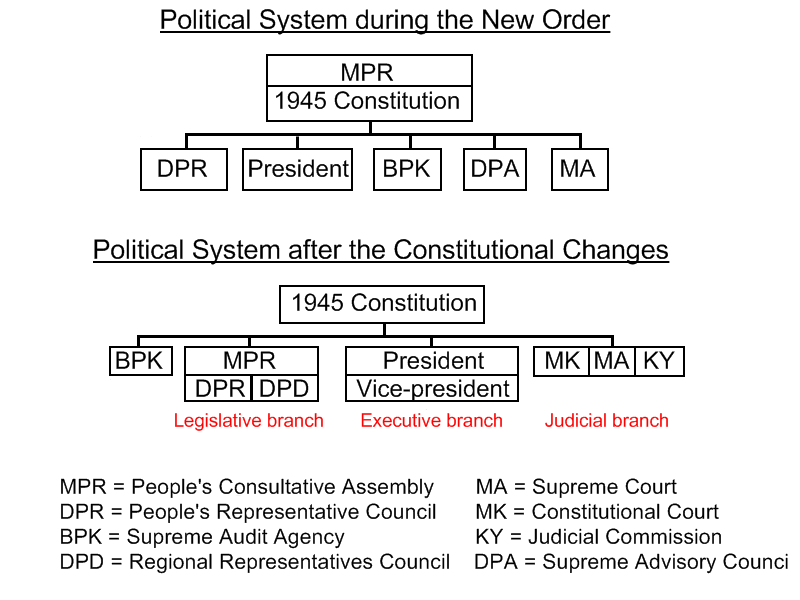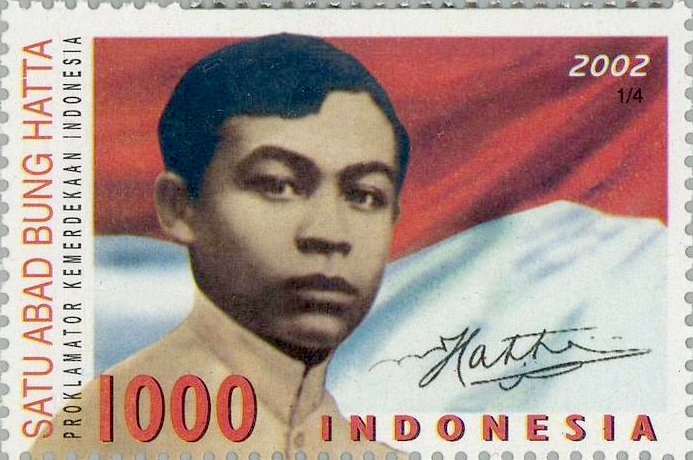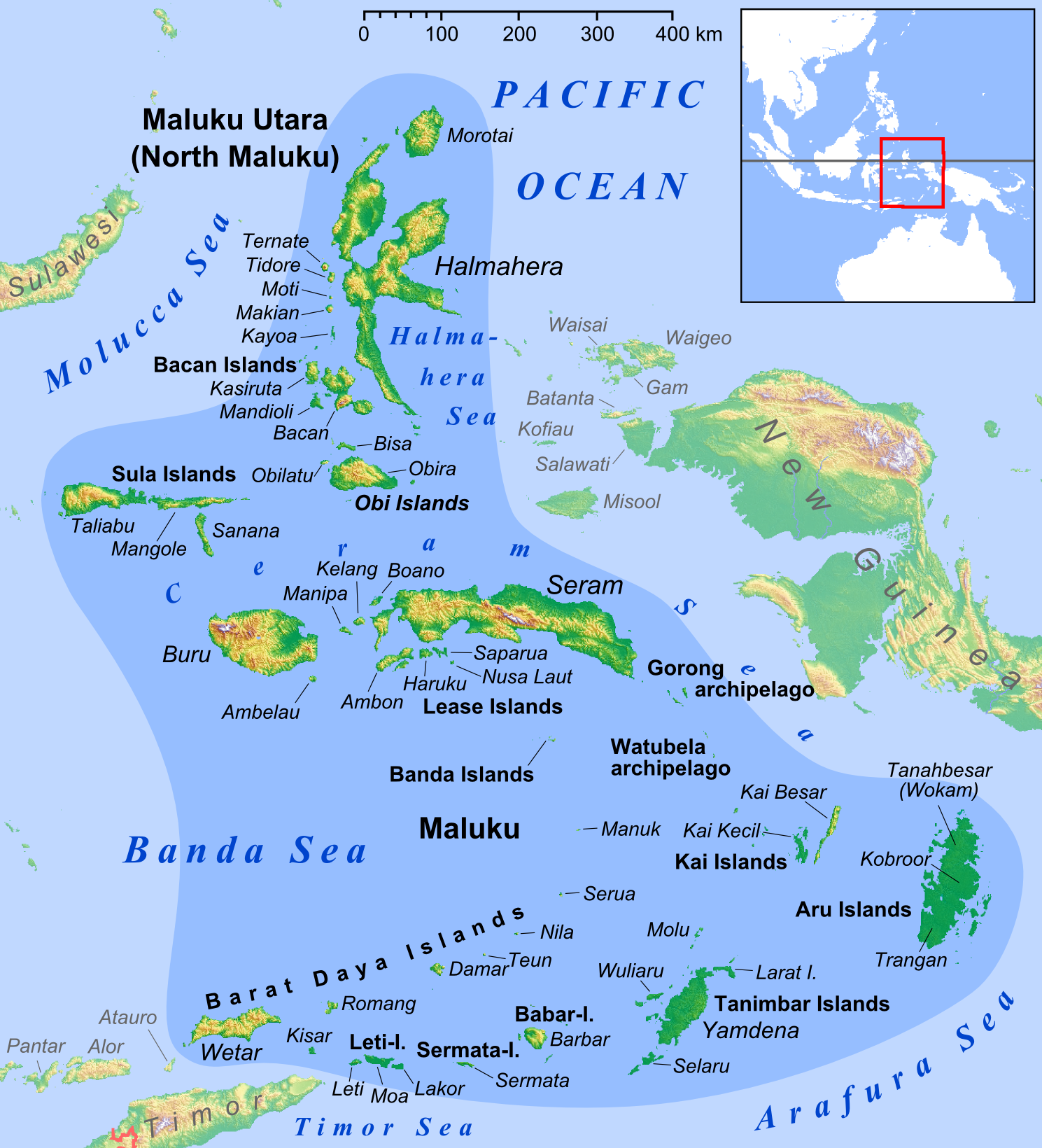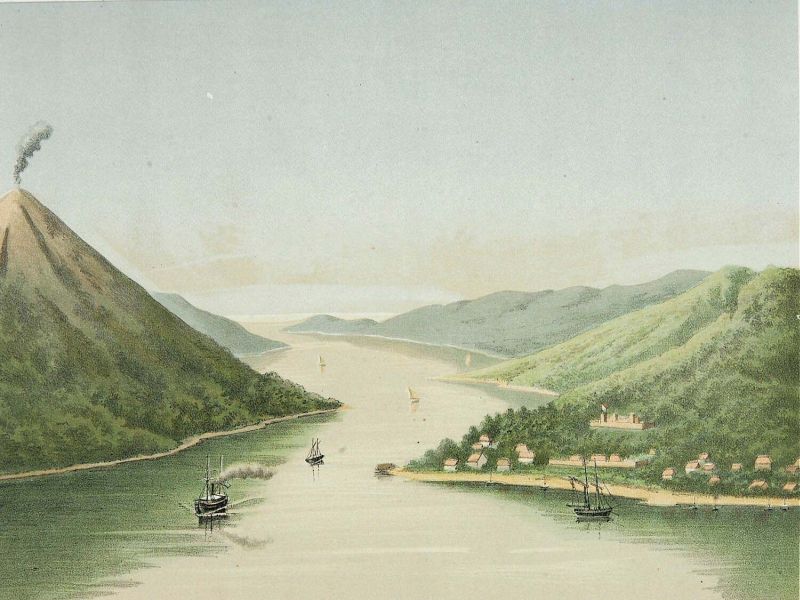|
Iwa Kusumasumantri
Iwa Koesoemasoemantri (Perfected Spelling: Iwa Kusumasumantri; also Kusuma Sumantri; 31 May 1899 – 27 November 1971) was an Indonesian politician. Born in Ciamis, West Java, Iwa graduated from legal school in the Dutch East Indies (now Indonesia) and Netherlands before spending time at a school in the Soviet Union. After returning to Indonesia he established himself as a lawyer, nationalist, and, later, a figure for workers' rights. During the first twenty years of Indonesia's independence Iwa held several cabinet positions. After retiring he continued to write. In 2002 Iwa was declared a National Hero of Indonesia. Early life Iwa was born in Ciamis, West Java, on 31 May 1899. After completing his primary education in schools run by the Dutch colonial government, he left for Bandung, where he attended the School for Native Government Employees (Opleidingsschool Voor Inlandse Ambtenaren, or OSVIA). Unwilling to adapt the Western culture demanded at the school, he dropped ... [...More Info...] [...Related Items...] OR: [Wikipedia] [Google] [Baidu] |
Sukarno
Sukarno). (; born Koesno Sosrodihardjo, ; 6 June 1901 – 21 June 1970) was an Indonesian statesman, orator, revolutionary, and nationalist who was the first president of Indonesia, serving from 1945 to 1967. Sukarno was the leader of the Indonesian struggle for independence from the Dutch colonialists. He was a prominent leader of Indonesia's nationalist movement during the colonial period and spent over a decade under Dutch detention until released by the invading Japanese forces in World War II. Sukarno and his fellow nationalists collaborated to garner support for the Japanese war effort from the population, in exchange for Japanese aid in spreading nationalist ideas. Upon Japanese surrender, Sukarno and Mohammad Hatta declared Indonesian independence on 17 August 1945, and Sukarno was appointed president. He led the Indonesian resistance to Dutch re-colonisation efforts via diplomatic and military means until the Dutch recognition of Indonesian independence ... [...More Info...] [...Related Items...] OR: [Wikipedia] [Google] [Baidu] |
Communist University Of The Toilers Of The East
The Communist University of the Toilers of the East (KUTV) (russian: link=no, Коммунистический университет трудящихся Востока; also known as the Far East University) was a revolutionary training school for important communist political leaders. The school operated under the umbrella of the Communist International and was in existence from 1921 until the late 1930s. Part of the university was split into the Moscow Sun Yat-sen University. History The Communist University of the Toilers of the East (KUTV) was established in 1921 in Moscow by the Communist International (Comintern) as a technical college for communist cadres from the Soviet periphery, though it also matriculated students from the Arab world, Africa, and East and South Asia. The school officially opened on 21 October 1921. It performed a similar function to the International Lenin School, which mainly accepted students from Europe and the Americas. It was headed in it ... [...More Info...] [...Related Items...] OR: [Wikipedia] [Google] [Baidu] |
Constitution Of Indonesia
The 1945 State Constitution of the Republic of Indonesia ( id, Undang-Undang Dasar Negara Republik Indonesia Tahun 1945, commonly abbreviated as ''UUD 1945'' or ''UUD '45'') is the supreme law and basis for all laws of Indonesia. The constitution was written in June, July, and August 1945, in the final months of the Japanese occupation of the Dutch East Indies at the end of World War II. It was abrogated by the Federal Constitution of 1949 and the Provisional Constitution of 1950, but restored by President Sukarno's 1959 Decree. The 1945 Constitution sets forth the Pancasila, the five nationalist principles, as the embodiment of basic principles of an independent Indonesian state. It provides for a limited separation of executive, legislative, and judicial powers. The governmental system has been described as "presidential with parliamentary characteristics."King (2007) Following major upheavals in 1998 and the resignation of President Suharto, several political reforms wer ... [...More Info...] [...Related Items...] OR: [Wikipedia] [Google] [Baidu] |
Japanese Occupation Of Indonesia
The Empire of Japan occupied the Dutch East Indies (now Indonesia) during World War II from March 1942 until after the end of the war in September 1945. It was one of the most crucial and important periods in modern Indonesian history. In May 1940, Germany occupied the Netherlands, and martial law was declared in the Dutch East Indies. Following the failure of negotiations between the Dutch authorities and the Japanese, Japanese assets in the archipelago were frozen. The Dutch declared war on Japan following the 7 December 1941 Attack on Pearl Harbor. The Japanese invasion of the Dutch East Indies began on 10 January 1942, and the Imperial Japanese Army overran the entire colony in less than three months. The Dutch surrendered on 8 March. Initially, most Indonesians welcomed the Japanese as liberators from their Dutch colonial masters. The sentiment changed, however, as between 4 and 10 million Indonesians were recruited as forced labourers ('' romusha'') on economic dev ... [...More Info...] [...Related Items...] OR: [Wikipedia] [Google] [Baidu] |
Tjipto Mangunkusumo
Cipto Mangunkusumo or Tjipto Mangoenkoesoemo (4 March 1886 in Pecangakan, Ambarawa, Semarang – 8 March 1943 in Batavia) was a prominent Indonesian independence leader and Sukarno's political mentor. Together with Ernest Douwes Dekker and Soewardi Soerjaningrat he was one of the three founders of the influential Indische Party, a political party disseminating the idea of self-government of the Dutch East Indies. After the party was labeled subversive by colonial court of law in 1913, he and his fellow IP leaders were exiled to the Netherlands. Cipto advocated an Indies-based nationalism rather than Javanese nationalism. Unlike other Javanese nationalist leaders, Cipto's belief in democracy remained strong until the end of this life and in his view the traditional character of feudal Javanese civilization had to change. He considered western education and its subsequent social and cultural dislocation as indispensable in creating a revolutionary atmosphere. He disagreed with Budi U ... [...More Info...] [...Related Items...] OR: [Wikipedia] [Google] [Baidu] |
Sutan Sjahrir
Sutan Sjahrir (5 March 1909 – 9 April 1966) was an Indonesian politician, and revolutionary independence leader, who served as the first Prime Minister of Indonesia, from 1945 until 1947. Previously, he was a key Indonesian nationalist organizer in the 1930s and 1940s. Unlike some of his colleagues, he did not support the Japanese during the Japanese occupation and fought in the resistance against them. He was considered to be an idealist and an intellectual. Born to a Minangkabau family, he studied at the University of Amsterdam, and later became a law student at the Leiden University. He became involved in Socialist politics, and Indonesia's struggle for independence, becoming a close associate of the older independence activist Mohammad Hatta, who would later become the first Vice President of Indonesia. During the Japanese occupation of the Dutch East Indies, Sjahrir fought in the resistance. Towards independence on 17 August 1945, he was involved in the Rengasdengklok I ... [...More Info...] [...Related Items...] OR: [Wikipedia] [Google] [Baidu] |
Muhammad Hatta
Mohammad Hatta (; 12 August 1902 – 14 March 1980) was an Indonesian statesman and nationalist who served as the country's first vice president. Known as "The Proclamator", he and a number of Indonesians, including the first president of Indonesia, Soekarno, fought for the independence of Indonesia from the Dutch. Hatta was born in Fort de Kock, Dutch East Indies (now Bukittinggi, Indonesia). After his early education, he studied in Dutch schools in the Dutch East Indies and studied in the Netherlands from 1921 until 1932. Early life, family, and early education Early life and family Hatta was born in Fort De Kock (now known as Bukittinggi) on 12 August 1902 into a prominent and strongly Islamic family. His grandfather, Sheikh Abdurrahman, was a respected Naqshbandi-Khalidi murshid in Batuhampar, near Payakumbuh. His father, Haji Mohammad Djamil, died when he was eight months old and he was left with his six sisters and his mother. As in the matrilineal society of Minang ... [...More Info...] [...Related Items...] OR: [Wikipedia] [Google] [Baidu] |
Marxism
Marxism is a Left-wing politics, left-wing to Far-left politics, far-left method of socioeconomic analysis that uses a Materialism, materialist interpretation of historical development, better known as historical materialism, to understand Social class, class relations and social conflict and a dialectical perspective to view social transformation. It originates from the works of 19th-century German philosophers Karl Marx and Friedrich Engels. As Marxism has developed over time into various branches and schools of thought, no single, definitive Marxist philosophy, Marxist theory exists. In addition to the schools of thought which emphasize or modify elements of classical Marxism, various Marxian concepts have been incorporated and adapted into a diverse array of Social theory, social theories leading to widely varying conclusions. Alongside Marx's critique of political economy, the defining characteristics of Marxism have often been described using the terms dialectical mater ... [...More Info...] [...Related Items...] OR: [Wikipedia] [Google] [Baidu] |
Banda Islands
The Banda Islands ( id, Kepulauan Banda) are a volcanic group of ten small volcanic islands in the Banda Sea, about south of Seram Island and about east of Java, and constitute an administrative district (''kecamatan'') within the Central Maluku Regency in the Indonesian province of Maluku. The islands rise out of deep ocean and have a total land area of approximately . They had a population of 18,544 at the 2010 Census and 20,924 at the 2020 Census. Until the mid-19th century the Banda Islands were the world's only source of the spices nutmeg and mace, produced from the nutmeg tree. The islands are also popular destinations for scuba diving and snorkeling. The main town and administrative centre is Bandanaira, located on the island of the same name. History Pre-European history The first documented human presence in the Banda Islands comes from a rock shelter site on Pulau Ay that was in use at least 8,000 years ago. The earliest mention of the Banda Islands are fou ... [...More Info...] [...Related Items...] OR: [Wikipedia] [Google] [Baidu] |
Banda Neira
Banda Neira (also known as Pulau Neira) is an island in the Banda Islands, Indonesia. It is administered as part of the administrative Banda Islands District (''Kecamatan Kepulauan Banda'') within the Central Maluku Regency in the province of Maluku. To the south is the main town of the same name, which is the largest town in the archipelago with around 7,000 inhabitants. Geography The island has a length of about and width of , with Mount Papenberg as the highest elevation at . It is located approximately south of the island of Seram. The island is at the center of the Banda Islands group, with the neighboring island of Banda Api is around 100 meters west, and Lontor is around 1.5 km to the south. Banda Api, Lontor and Banda Neira form the rim of a submerged caldera with a diameter of around seven kilometers. History Nutmeg is grown on the island and trade brought the inhabitants great wealth in the premodern period. Until the early 17th century, the Banda Islands w ... [...More Info...] [...Related Items...] OR: [Wikipedia] [Google] [Baidu] |
Labour Union
A trade union (labor union in American English), often simply referred to as a union, is an organization of workers intent on "maintaining or improving the conditions of their employment", ch. I such as attaining better wages and benefits (such as holiday, health care, and retirement), improving working conditions, improving safety standards, establishing complaint procedures, developing rules governing status of employees (rules governing promotions, just-cause conditions for termination) and protecting the integrity of their trade through the increased bargaining power wielded by solidarity among workers. Trade unions typically fund their head office and legal team functions through regularly imposed fees called ''union dues''. The delegate staff of the trade union representation in the workforce are usually made up of workplace volunteers who are often appointed by members in democratic elections. The trade union, through an elected leadership and bargaining committee, b ... [...More Info...] [...Related Items...] OR: [Wikipedia] [Google] [Baidu] |
North Sumatra
North Sumatra ( id, Sumatra Utara) is a province of Indonesia located on the northern part of the island of Sumatra. Its capital and largest city is Medan. North Sumatra is Indonesia's fourth most populous province after West Java, East Java and Central Java, and also the most populous in the island of Sumatra. It covers an area of 72,981 km2. According to the 2020 census, the province's population in that year was 14,799,361. The mid-2021 official estimate is 14,936,148. North Sumatra is a multi-ethnic province. The Malay people are regarded as the natives of the east coast of the province, while the west coast of the province is mainly inhabited by the Batak (''Pakpak'', ''Angkola'' and ''Mandailing'' groups). The central highlands region around Lake Toba is predominantly inhabited by another ''Batak'' groups (''Toba'', ''Simalungun'' and ''Karo''). The Nias people are natives to ''Nias Island'' and its surrounding islets. With the opening of tobacco plantations in East S ... [...More Info...] [...Related Items...] OR: [Wikipedia] [Google] [Baidu] |









